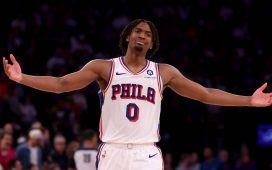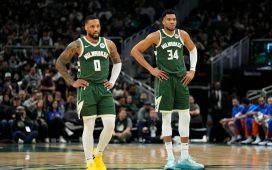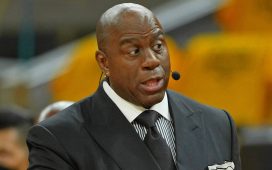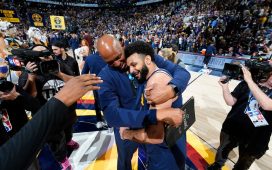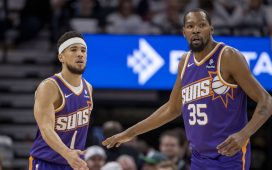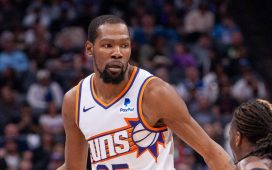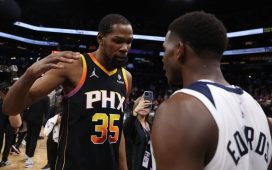Thus, schools can now offer graduate school scholarships, academic awards and computers, with conferences able to set limits if they choose. For the rare athlete like Myron Rolle, who starred at Florida State, played in the N.F.L. and is now a neurosurgery resident at Harvard Medical School, the new rules could be a boon.
But Len Elmore, a member of the reform-minded Knight Commission on College Athletics, suggested that the spirit of the ruling could be readily exploited.
“Can a school say to a recruit, we’ll get you a job on Wall Street that pays $500,000 if you sign with us?” said Elmore, a lawyer, broadcaster and former N.B.A. player. “Institutional integrity is on the line here.”
Elmore suggested that with the court’s ruling and athletes in at least eight states poised to gain the ability to profit off their fame beginning July 1, major college sports will be operating in a “wild West” environment and that a strong central authority is needed.
“There’s all this chaos and what you need is a sheriff with unfettered authority to make sure there’s reason and law,” Elmore said. “And the N.C.A.A. is not equipped to do that right now.”
It’s hard to ever remember the N.C.A.A. being equipped to operate with a heavy hand. It jumped to attention in 2014 when Shabazz Napier, a guard at Connecticut, told reporters at the Final Four that he went to bed hungry because he didn’t have enough money to feed himself.
Soon, food allowances were bumped up.
But it was hardly a new problem: nearly 20 years earlier, Donnie Edwards, a linebacker at U.C.L.A., was suspended for a game and ordered to pay $150 restitution after an agent left a couple bags of groceries for him.


